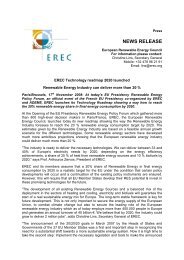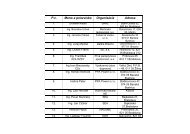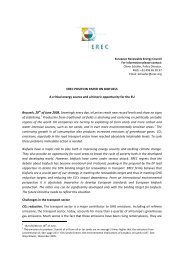English version - European Renewable Energy Council
English version - European Renewable Energy Council
English version - European Renewable Energy Council
Create successful ePaper yourself
Turn your PDF publications into a flip-book with our unique Google optimized e-Paper software.
C O N F E R E N C E P R O G R A M M ET U E S D A Y , 2 0 T H J A N U A R Y 2 0 0 4 - S E S S I O N 2 - P A N E L 2 aTUESDAY, 20TH JANUARY 2004Session 2IMPLEMENTATION OF RENEWABLE ENERGY SOURCESPOLICIES IN THE EUROPEAN MARKETSPanel 2a:PRODUCING RENEWABLE ELECTRICITY FROMRENEWABLE ENERGY SOURCES - WHAT IS BEINGACHIEVED AND WHAT ARE THE BEST APPROACHES FOROVERCOMING ADMINISTRATIVE AND MARKET BARRIERS?Electricity can be produced by each of the main renewableenergy sources (wind, hydro, geothermal, biomass,and solar). During the last decade, despite economicdownturns, there has been a steady growth in the marketfor renewable electricity worldwide, especially in <strong>European</strong>d some sectors, notably wind energy have grownremarkably with annual growth rates exceeding 35%.<strong>European</strong> companies are world leaders in supplying technologiesfor renewable electricity production, and havetherefore benefited from this market growth, with anannual turnover of more than € 10 billion and an employmentof more than 200,000 people.35000 MW30000 MW25000 MW20000 MW15000 MW10000 MW5000 MWCumulative installed wind capacity■ <strong>European</strong> Union 15■ World■ EU % of worldNevertheless, renewable electricity today accounts for lessthan 15,8% of Europe’s electricity consumption, and policymakers recognise that much remains to be done beforethe benefits of renewable electricity, including improvedsecurity of supply, affordable energy prices and environmentalprotection, can be fully realised for the majority of<strong>European</strong> citizens. This is why all of the EU Member Statesshould ensure that all aspects of the EU Directive on electricityproduced from renewable energy sources which wassigned in September 2001 are implemented at national level.Five important barriers are identified in the Directive, andthese are still slowing the growth of renewable electricitymarkets in most of the EU down Member States. In particular,favourable policies are needed at National and local levelsto optimise application procedures for financial support,to simplify administrative procedures for planning and buildingapprovals, to issue guarantees of origin, to ensure transparencyof grid connection costs, and to facilitate access toelectricity grids at each of the required voltage levels.The implementation of the internal electricity market and theneed to maintain competitive electricity prices on one handand the needs to reduce dependency on imported energysources, and to respect international agreements on reducingemissions of greenhouse gases (Kyoto) are already leading toimportant changes in the electricity sector. These changesand, notably, higher penetration of smaller distributed electricitygenerators will require in future that EU electricity gridsbe managed using far more intelligent management systems,which can respond more easily to variable sources of electricitysupply. They should therefore be able, more easily thanbefore, to accept the introduction of new renewable electricitygenerators. However, it will be important to ensure over thenext few years that new intelligent grid management systemsare designed to be fully compatible with the needs of renewableelectricity generators. In addition, there is still a need toraise the awareness of the general public and of high leveldecision makers in utilities and in local administrations concerningthe potential benefits of renewable electricity.1990 1991 1992 1993 1994 1995 1996 1997 1998 1999 2000 2001 2002439 629 844 1211 1683 2497 3476 4753 6453 9678 12887 17315 230561743 1983 2321 2801 3531 4821 6104 7636 10153 13594 17357 23857 3112870%60%50%40%30%20%10%0%Source: EWEA, 200312


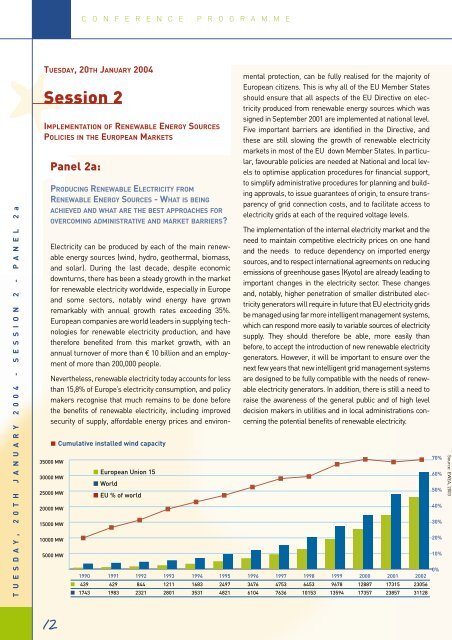
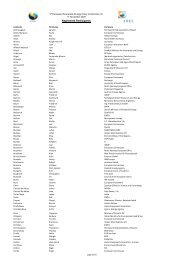
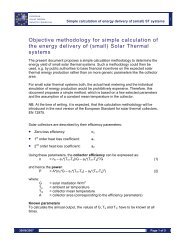

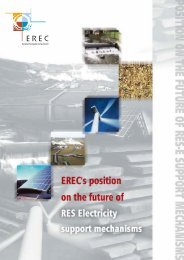
![Energy [R]evolution - Greenpeace](https://img.yumpu.com/47174859/1/184x260/energy-revolution-greenpeace.jpg?quality=85)
